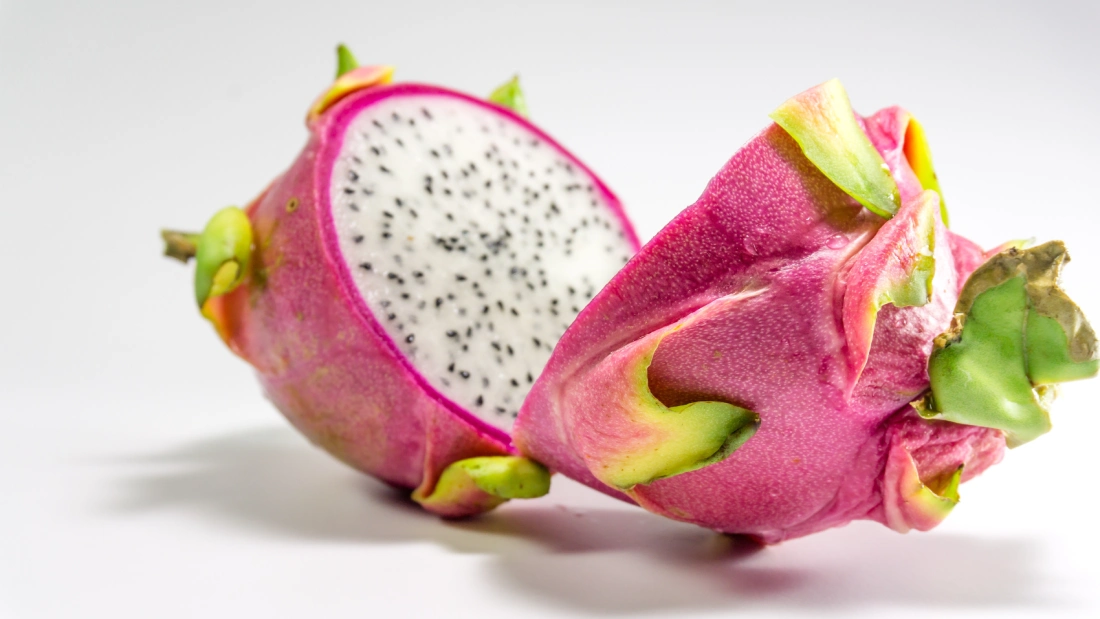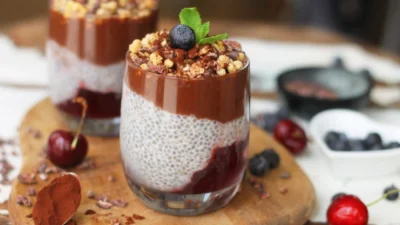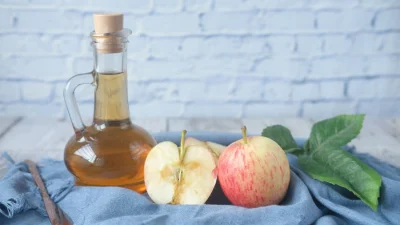7 unusual foods with health benefits

Many of us are very familiar with the commonly touted ‘superfoods’ such as goji berries, chia seeds and walnuts but it’s time to shine the spotlight on some lesser known foods which we’d be wise not to overlook. So, next time you’re perusing the supermarket or world food shop, consider adding one of the following items to your shopping basket.
1. Dragon fruit
Dragon fruit, also known as pitaya, is a tropical fruit in the cactus family. Although originally from Central and South America, it is now very common in Southeast Asia and has spread across the globe. Dragon fruit gets its name from its strange red, leathery and scaly skin, but beneath its foreboding exterior is a juicy and refreshing purple or white flesh dotted with soft black seeds. Dragon fruit is packed full of antioxidants and has anti-inflammatory properties. According to one study, it can also “reduce the occurrence of conditions such as diabetes, dyslipidaemia, metabolic syndrome, cardiovascular diseases and cancer.” There’s nothing mythological about the health benefits of the dragon fruit!
2. Nutritional yeast
Nutritional yeast, often referred as nooch by those in the know, is an inactive form of the yeast Saccharomyces cerevisiae, the same strain of yeast used in baking and brewing but inactivated so it’s no longer alive. It might not seem unusual to seasoned vegans but most people have probably never considered picking up a tub. Nooch has a distinctive nutty, cheesy taste and is the perfect seasoning for any savoury meal – sprinkle it on pasta, stir into soups and mix it with sauces. Nutritional yeast is a B-vitamin goldmine with many varieties also being fortified with vitamin B12 so that you get the complete B vitamin spectrum. It’s also a good source of fibre and contains all nine essential amino acids, helpfully contributing to your daily protein requirement. How many more reasons do you need to reach for the nooch?!
3. Psyllium husk
Psyllium husk is made from the seeds of the psyllium plant – the common name for Plantago ovata. It can be sold as whole husks, a powder or capsules and can be used in a similar way to ground flaxseed. It doesn’t have a strong flavour so can be mixed with other foods without affecting the taste too much – but it will thicken them up significantly, so only add it to a smoothie if you’re going to drink it immediately, otherwise you’ll be eating it with a spoon! Psyllium husk is a soluble fibre and is often used to relieve constipation – but it has other health benefits too. A systematic review and meta-analysis of randomised controlled trials found that about 10 grams of psyllium a day “significantly reduced LDL cholesterol” therefore improving cardiovascular health. It has also been shown to aid blood-sugar management in people with type 2 diabetes. So, if you’re looking to lower your cholesterol, improve blood-sugar management, or put an end to constipation, psyllium husk is a must!
4. Seitan
Like nooch, seitan is often worshipped by vegans but is not well known outside of the movement – although it has been eaten in China, Japan, Vietnam and other East and Southeast Asian countries since the 6th century, and some Chinese shops sell seitan meat alternatives such as mock duck. Seitan is a wheat gluten dough that can be used as a succulent and satisfying meat alternative. Seitan contains about 24 grams of protein per 100 grams – that’s a lot! It’s more protein than you find in tofu or tempeh (and most meats) which makes it not only a protein hero but also an ideal protein source for people who don’t tolerate soya well or just want to diversify their diet. And if you’re worried about gluten, there’s no need unless you have coeliac disease or a gluten sensitivity; most people can eat and enjoy it without any problem.
5. Lion’s mane mushroom
Lion’s mane mushroom (Hericium erinaceus) are considered safe in general, unless you’re allergic to mushrooms. They can be found in forests across North America, Europe and Asia – but you must not go foraging for it in the UK as it’s a protected species making it illegal to harvest in the wild. Fortunately, these days you can find them in well-stocked supermarkets and world food shops. Lion’s mane – alongside cordyceps and reishi – is considered an adaptogenic mushroom (not the same as a ‘magic’ mushroom!), meaning it contains adaptogens which may help reduce the effects of stress on your body. Studies of Lion’s Mane mushrooms suggest they may help reduce anxiety, improve mood and sleep quality. Lion’s Mane mushrooms have also been shown to have some “benefits relating to neurodegeneration in older age, [while] other mushrooms appear to be less effective.” Alongside potential benefits for mood and cognition, Lion’s Mane mushrooms may protect against stomach ulcers, have anti-cancer properties, and may reduce inflammation and oxidative stress.
6. Aquafaba
Aquafaba is a fancy name for the water inside a can of beans and gets its name from the Latin for water (aqua) and beans (faba). You’d be in the majority if you usually just pour this gloopy liquid down the sink when you drain your chickpeas but next time think twice because you’re throwing away the magic ingredient to make vegan meringues, mayo and macarons. Aquafaba’s strengths lie in what it doesn’t contain rather than what it does, as it’s not particularly nutrient-rich. But because aquafaba can be used to replace egg whites in many recipes, it is great for vegan baking and for those allergic to eggs. Its low protein content also makes it a good egg alternative for people with phenylketonuria (PKU) and need to watch their protein intake. Whatever your reasons, it’s time to get aquafabulous with aquafaba – see recipes here!
7. Jackfruit
Jackfruit – or nangka – is the largest edible fruit in the world and native to either the Western Ghats mountain range in India or Malaysia (depending on which experts you ask) but is grown in subtropical and tropical regions across Southeast Asia, Africa and South America. In the tropics, it’s usually eaten as a delicious fresh fruit but in the West it’s often bought tinned and has become popular as a meat substitute in curries and pulled jackfruit burgers. According to a 2019 review, jackfruit “is well known for its antibacterial, antifungal, antidiabetic, anti-inflammatory, and antioxidant activities” and “phytonutrients such as lignans, isoflavones, and saponins in jackfruit contribute to its anticancer, antihypertensive, antiulcer, and anti aging properties.” Jackfruit is bursting with vitamins and minerals, such as vitamin C, potassium and magnesium. With its versatility and impressive nutrient profile, you could say the jackfruit is a jack of all fruits.
The term ‘superfood’ is massively overused and overhyped – while so-called superfoods do have health benefits, almost all whole and minimally processed plant foods have something unique and beneficial to offer. Rather than focusing on a small handful of foods with a good marketing team behind them, we should focus on eating a diverse range of healthy plant-based foods – and what better way to do that than experimenting with some of the more unusual options on the supermarket shelves?







